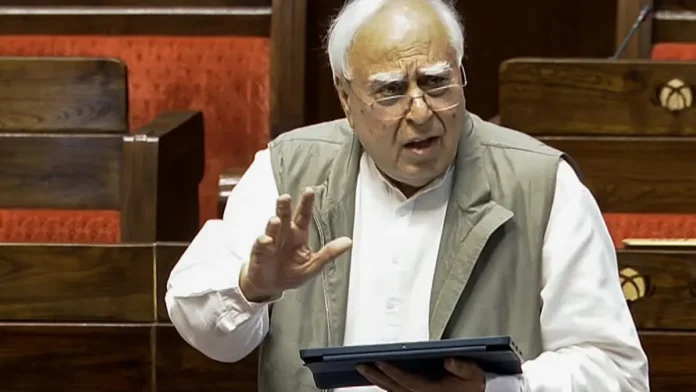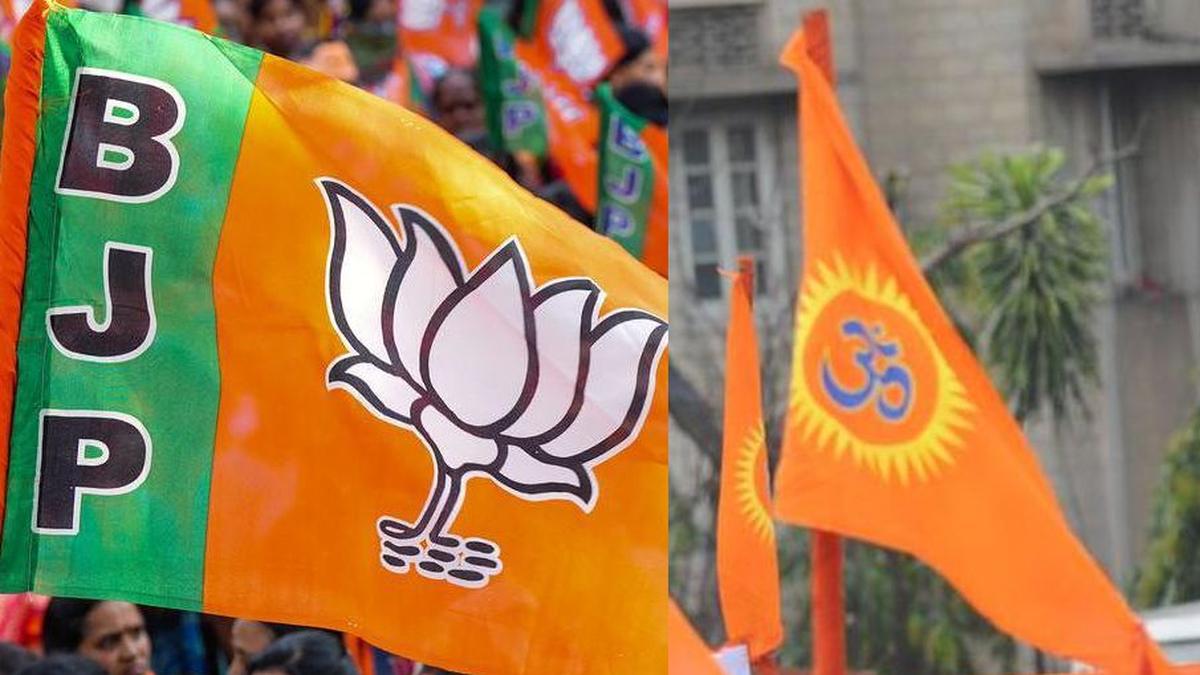
In a sharp critique of the Rashtriya Swayamsevak Sangh (RSS) and its chief, Mohan Bhagwat, Rajya Sabha MP Kapil Sibal has raised concerns about the inconsistencies between Bhagwat’s public statements and the actions of the BJP-led government. According to Sibal, while Bhagwat preaches unity and harmony, the government, backed by the RSS, seems to act in ways that divide society, especially after 2014. This analysis dives deeper into Sibal’s remarks and the broader context surrounding his criticisms of the RSS and its influence on the government.
RSS Chief’s Vijayadashami Remarks vs Government’s Actions
In his Vijayadashami address on October 12, 2024, RSS chief Mohan Bhagwat emphasized that India has grown stronger and more respected globally, gaining credibility in recent years. He also pointed out the challenges the country faces due to sinister conspiracies testing its resolve. Bhagwat’s speech touched upon unity, religious harmony, and the importance of recognizing cultural diversity within India.
However, Kapil Sibal, a veteran politician and former Union Minister, has taken issue with these remarks. While he welcomed Bhagwat’s message of unity, Sibal pointed out a significant disconnect between the RSS chief’s rhetoric and the actions of the government that the RSS supports. According to Sibal, despite Bhagwat’s calls for harmony, India has witnessed increasing divisions, particularly targeting minorities, in the years since 2014.

RSS and the Question of Social Division
One of Kapil Sibal’s main critiques is that, while the RSS talks about unity, the reality on the ground is quite different. Sibal highlighted that since 2014, when the BJP, backed by the RSS, came to power, societal divisions have deepened. He pointed to incidents where minorities have been specifically targeted, often with government support or indifference. Sibal’s sharp critique focuses on the fact that RSS ideologies do not always align with the actions of the government it influences.
Sibal questioned why the RSS remains silent when controversial incidents such as ‘love jihad’ and ‘flood jihad’ are discussed, and why the RSS fails to question the government when it takes actions that go against Bhagwat’s statements of unity.

The Role of the RSS in Supporting the Government
The RSS holds significant influence over the current government, given its close ideological ties with the ruling BJP. While Bhagwat’s statements promote harmony, Sibal argues that this influence is not being used to hold the government accountable for its divisive policies. For example, Sibal cited the use of bulldozers against minorities as a symbol of how the RSS supports actions that contradict its public messaging.
Moreover, Sibal criticized the RSS for not speaking out when the government fails to protect minorities or the marginalized Valmiki community, which he claimed is living in fear. This inconsistency, according to Sibal, reflects the growing disconnect between the RSS’s stated values and the government’s actions.
RSS and Cultural Marxism: Bhagwat’s Attack on Education and Woke Culture
In his speech, RSS chief Mohan Bhagwat also targeted “cultural Marxists” and “woke people,” accusing them of undermining education and culture. Bhagwat argued that these groups promote conflict, disrupt social cohesion, and damage India’s traditional values. This criticism reflects the RSS’s ideological stance against what it perceives as left-wing influences that threaten the country’s cultural and social framework.
Kapil Sibal, however, questioned why the RSS directs its attention toward such issues instead of focusing on the real, tangible problems facing the country—such as rising violence, political assassinations, and the growing fear among minority communities. Sibal pointed out that despite Bhagwat’s criticism of divisive ideologies, the RSS fails to address the growing societal fractures caused by its own ideological affiliates.
Kapil Sibal Questions RSS Silence on Government’s Failures
Sibal’s critique of the RSS did not end with cultural concerns. He also pointed to recent political events, including the assassination of NCP leader Baba Siddiqui in Maharashtra, asking why the RSS did not question such brazen acts of violence. According to Sibal, the RSS has failed to hold the government accountable for ensuring the security of the country and its citizens, especially minorities and vulnerable communities like the Valmikis.
Sibal also expressed surprise at the RSS’s silence on controversial statements made by political leaders, including Assam’s Chief Minister, who has made several inflammatory remarks. This silence, according to Sibal, further widens the gap between the RSS chief’s public messages and the reality of the government’s actions.
The Disconnect Between RSS and Government: Sibal’s Conclusion
The core of Kapil Sibal’s argument lies in the increasing disconnect between the RSS chief’s calls for unity and the divisive actions of the BJP-led government. While Bhagwat may advocate for religious harmony and cultural respect, Sibal believes that the RSS’s lack of action when it comes to holding the government accountable is contributing to the worsening societal divisions in the country.
According to Sibal, the RSS has a responsibility to ensure that the government it supports aligns with its stated values, particularly when it comes to protecting minorities and promoting harmony. Instead, Sibal argued, the RSS has allowed the government to act in ways that deepen divisions, undermining Bhagwat’s own messages of unity and inclusivity.
RSS Influence and the Future of India’s Social Fabric
The role of the RSS in shaping India’s political and social landscape cannot be understated. As an organization that wields considerable influence over the ruling party, the RSS has the power to push for policies that reflect Bhagwat’s ideals of unity and national strength. However, Kapil Sibal’s criticism sheds light on a growing concern: that the RSS may not be using its influence to challenge the government when it strays from these principles.
As India continues to grapple with internal divisions and external challenges, the role of the RSS will be critical in determining whether the country moves toward unity or deeper social fragmentation. Sibal’s pointed questions serve as a reminder that, for many, the gap between the RSS’s words and the government’s actions remains troublingly wide.
Conclusion: Can RSS Align Its Ideals with Government Actions?
Kapil Sibal’s critique highlights the fundamental disconnect between the RSS chief’s ideals and the BJP-led government’s actions. While Mohan Bhagwat continues to emphasize the importance of national unity, cultural respect, and social harmony, the government’s actions often suggest otherwise, particularly when it comes to the treatment of minorities and the marginalized.
For the RSS to truly fulfill its vision of a united India, it may need to take a more active role in holding the government accountable for policies and actions that conflict with its stated values. As long as this disconnect remains, the credibility of the RSS’s message will continue to be questioned.
